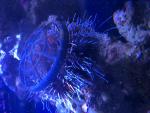|
|
Results 1 to 6 of 6
Thread: Belle's Yoga to Alter Reality
Hybrid View
-
06-03-2012 02:58 AM #1Administrator


 Achievements:
Achievements:








- Join Date
- Jul 2007
- LD Count
- 2500ish
- Gender

- Location
- Idaho
- Posts
- 4,837
- Likes
- 5871
- DJ Entries
- 420
Similar Threads
-
Your Evil Alter Ego.
By Invader in forum General Dream DiscussionReplies: 19Last Post: 10-26-2015, 03:31 AM -
Alter Ego - False awakening
By afd beatle in forum Lucid ExperiencesReplies: 3Last Post: 01-08-2010, 11:00 PM -
Does reality alter dreams?
By Booldawg in forum General Dream DiscussionReplies: 3Last Post: 11-05-2009, 01:57 AM -
Tibetan dream yoga, Gnostic dream yoga, Lucid dreaming
By austin in forum General Lucid DiscussionReplies: 3Last Post: 03-16-2008, 10:30 PM -
MUSIC: Belle and Sebastian.....
By Mystical_Journey in forum EntertainmentReplies: 2Last Post: 06-19-2005, 09:23 AM




 3Likes
3Likes
 LinkBack URL
LinkBack URL About LinkBacks
About LinkBacks





 Reply With Quote
Reply With Quote
Bookmarks